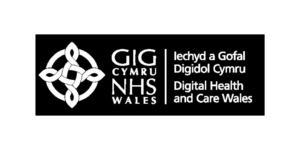Case study: Digital Health & Care Wales
State of Open: The UK in 2021
Phase Three: “The Value of Open”

 Paul Owen, Senior product specialist Corporate Applications
Paul Owen, Senior product specialist Corporate Applications
Synopsis
Digital Health and Care Wales (DHCW) are responsible for the digital transformation efforts of healthcare in Wales nd delivering programmes to facilitate modern technology enabled healthcare. An example of this is a world-leading national data resource to expand digital patient records. This has been a tricky process, but centralising the Welsh NHS’ systems has been made manageable by the use of open source software. They believe that the openness of open source tools give the ability to learn and self-support and are therefore often the best solution. In the healthcare especially, where speed of access to documents is vital to providing good care, open source is becoming increasingly crucial in the development of efficient systems.
9.4 Digital Health and Care Wales
Third-party support enabling open source to thrive
In conversation with Paul Owen, senior product specialist Corporate Applications
About DHCW
Digital Health and Care Wales (DHCW) are responsible for the digital transformation efforts for healthcare in Wales and delivering programmes to facilitate modern technology-enabled healthcare. One such programme is the expansion of digital patient records by creating a world-leading national data resource.
This is no mean feat; the Welsh NHS is made up of hundreds of legacy applications that are not connected. DHCW’s task of centralising these systems has been made considerably easier through their use of open source software.
DHCW is a special health authority within the NHS who design and create corporate, digital and patient facing applications. They use open source software solution Apache Solr in a clinical setting at DHCW.
Apache Solr
Solr provides distributed indexing, replication and load-balanced querying, centralised configuration, automated failover and recovery… and more. The implementation at DHCW is impressive: there are eight servers divided into four nodes – meaning there are 32 nodes served with upwards of 20 million documents.
As Paul notes, Solr is “quite challenging to learn…it takes a good few months to get your head around all the different moving parts”. The success of Solr at DHCW comes from the extensive support and learning they received through its implementation and ongoing use, with its value including both collaboration and skills development in its use.
Using open source with confidence: third-party support and consultation
Paul explains that due diligence is paramount when incorporating new technologies and this is particularly so in health-care. Solr, like any other product, had to be approved as complying with their internal processes. In this instance they worked with a third party consultant and support service, OpenSource Connections to give DHCW the confidence to use the application. Solr could be implemented with assurance that they had the support behind them for it to function effectively and in tandem with learning and skills development internally to be able to maintain it going forward.
Adapting open source to suit DHCW
The Corporate Application team have become so well versed in Solr that they have been able to implement their own alternative instances of the application for different areas of their business. They have used a smaller implementation of Solr to index other websites for the Welsh NHS organisation. This is one of the true values to the NHS in using open source software, the ability to freely scale and replicate.
Conclusion
When it comes to clinical applications dealing with sensitive information, security, reliability and support are fundamental. The question asked is always “what’s the best tool for the job?” Ultimately, Paul stresses that with the confidence garnered from initial third party support similar to proprietary software, open source tools by their openness offer the ability to learn and self support over time and so are often the best solution.
Increasingly open source software solutions are the most viable, cheaper alternative to proprietary software with the added value of skills development and the ability to reuse and recycle. In a healthcare environment, where speed of access to documents is crucial to providing the best care, open source is becoming increasingly important to developing efficient systems. It’s an exciting time to be incorporating open source within the healthcare sector.
